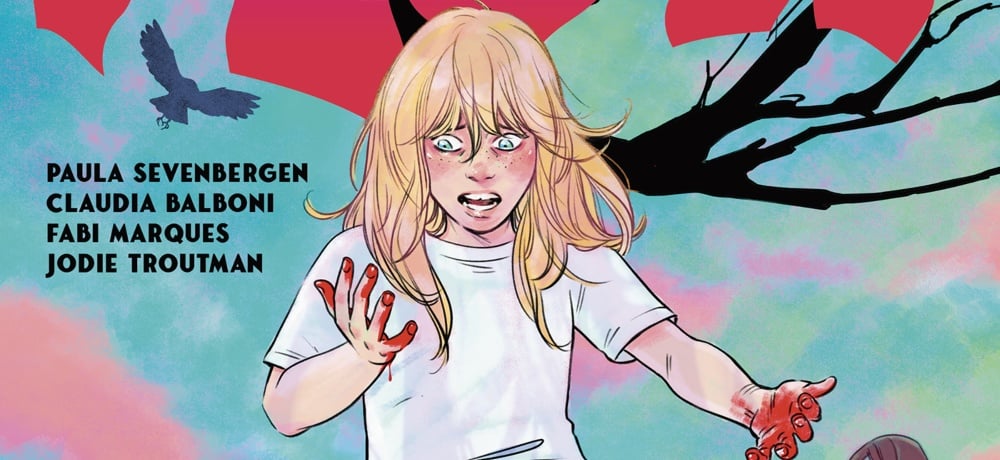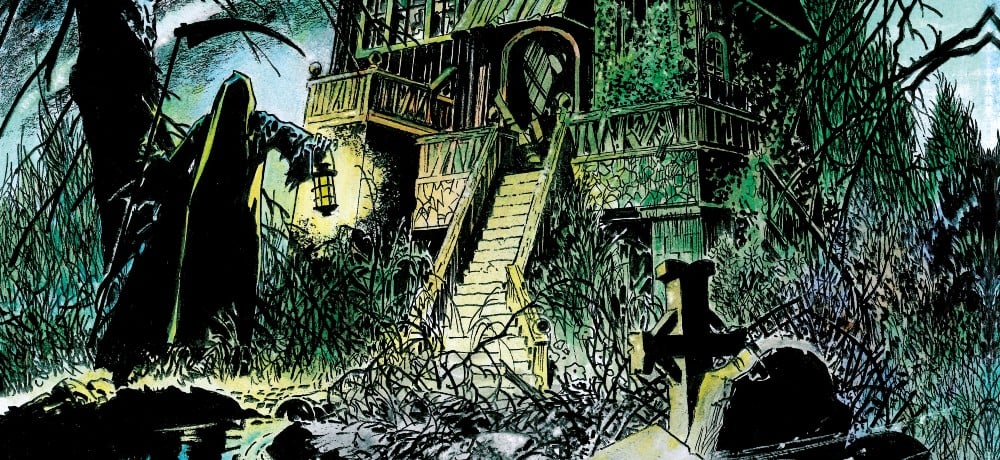






By the early ‘70s, Hammer films was wheezing and sputtering just to stay alive. Their attempts to stay current with the changing tides of horror were often misbegotten and misdirected (Dracula A.D. 1972, anyone?) as the plots continued to recycle shopworn ideas when audiences were ready for more modern concerns, such as hulking maniacs with chainsaws. In essence, time was passing Hammer by, and they were willing to try anything. Hence we arrive at The Legend of the 7 Golden Vampires (1974), a delightful elixir of Dracula and…Kung Fu. This was the last gasp for Hammer’s beloved franchise, and it’s a very worthy burial.
AKA 7 Brothers Versus Dracula, 7 Brothers and a Sister Meet Dracula, 7 Golden Vampires, and Enter The Dracula (no, but who screwed up that marketing?), Legend was a co-production between Hammer and Shaw Brothers, the immortal Chinese martial arts film studio that would crank out 10, sometimes 15 films a year of kinetic, oversized, ballistic ballets. The idea was the mix would bring some western recognition to the Run Run Shaw brand, and offer up a fresh perspective for jaded fans of our favorite bloodsucker. And while the former never happened (Shaw flicks continue to be a barometer of cult coolness), The Legend of the 7 Golden Vampires still stands as the most unusual (and flat out fun) Dracula film Hammer ever offered.
1804, Transylvania. A Chinese monk has a meeting with Dracula (John Forbes-Robertson, dubbed by David de Keyser), imploring him to come back to his village and help out his struggling band of vampires, who are now down to 6 due to a villager uprising. Dracula agrees, but only if he can use the monk’s visage to escape his guarded castle. Before the monk can object to Dracula’s plans, he is consumed and negates the need to pay one more British actor than necessary.
1904, Chungking. Professor Van Helsing (Peter Bloody Cushing, of course) is professing to a classroom of disbelieving students about the legend of the very same band that Drac joined, insisting they are real. None believe, except for one student, Hsi Ching (David Chiang), whose grandfather was involved in the original uprising 100 years prior, and he asks for Van Helsing’s help in ridding the remote village of the flying (and hopping!) mammals. Of course he agrees, aided by a wealthy widow (Julie Ege) who finances the trip, Van Helsing’s dashing son Leyland (Robin Stewart), and Hsi’s 7 combat ready siblings, including the lovely (and kick ass) Mai Kwei (Shih Szu). Off they head to the village to do battle against the legendary 7 vampires; fists, feet, silver stakes and more all part of a final showdown sure to please fans of both genres.
I was immersed in Kung Fu cinema at an early age; my family moved to Jamaica when I was 10 and we watched a lot of ‘70s martial arts flicks in the theatre, almost all (for sure the best ones) emblazoned with the Run Run Shaw seal of approval. These were the films with the same stories of vengeance, all set in the countryside, all dealing with familial retribution and training scenes, and above all this, over the top sound effects that leant a cartoonish flavor perfectly in tune with my young sensibilities. And while Kung Fu had a moment in North America with Bruce Lee and Enter the Dragon (1973), it never reached the same fervor it was awarded abroad. How popular was it? The town where I lived in Jamaica, Mandeville (population: 60,000), had a separate theatre that only showed Kung Fu movies.
No doubt Hammer was looking to get in on this overseas action, and The Legend of the 7 Golden Vampires was an appeal to reach international audiences on their own ground; filmed completely in China, with cast and crew split between Hammer and Shaw, the film somehow manages to retain the feel of both studios. Here we get latter day Hammer; ample nudity and bloodshed under the still-stiff upper lip guise of prestige, with Shaw offering up acrobatic, cartoonish action performed by trained artists on the screen, and by overzealous, clumsy kids in their backyards (ahem).
And it all works together better than it has any right to. Released from the pressure of trying to put yet another spin on the vampire as he attempted with Dracula A.D. 1972, writer Don Houghton could lean heavily on not only martial arts, but on Van Helsing himself. This film isn’t really about Drac at all; he bookends the film, first as a rather tepid count (Lee declined the role) and then as the monk at the end, dubbed voice and all. (In the middle too, with a gratuitous sacrifice scene complete with a bubbling blood vat and topless Asian damsels. What, you don’t boil your blood? It’s very hygienic.) The film even becomes a road movie as Van Helsing et al fend off a few of the golden vampires before they reach the village, bypassing that middle act sag that can hamper even a good Hammer.
Director Roy Ward Baker was a Hammer vet before this film (replacing Gordon Hessler, who left before shooting began), helming The Vampire Lovers (’70), Scars of Dracula (also ’70), and Dr. Jeckyll & Sister Hyde (’71). But my personal favorites of his are the omnibuses he made for Amicus, Asylum (’72) and The Vault of Horror (’73), both displaying a wit necessary to really sell the comic sensibility evident in the material. Legend plays like a grown up version of a Saturday matinee that I definitely would have seen in Mandeville – filled with daring do and old fashioned heroics with some nods to the more relaxed morals of the era. Meaning my 10 year old self would appreciate it as I do now. (I haven’t matured much.) He wasn’t credited, but director Cheh Chang handled all the fight scenes, and they crackle with the energy he would soon display in the best of his many Shaw films, including Five Deadly Venoms and Invincible Shaolin (both ’78).
And the cast blends very well; I’m sure the idea was to set up Stewart as the next generation Van Helsing, and he’s quite charming, but it wasn’t to be. Chiang is the real hero of the piece, anyway; a disarming smile to accompany his formidable skills, this is the direction and the hero Hammer should have adopted if they were able to move forward.
But, alas, The Legend of the 7 Golden Vampires was the end of Hammer’s Dracula franchise. It’s the last film, and this was Cushing’s fifth and final portrayal of a signature character, Professor Van Helsing. He brings as much class and dignity as he ever has, even when battling Kung Fu vampires (especially when battling Kung Fu vampires). I love that the series ends here; if I had seen it back in Mandeville, I assure you I would have added vampire teeth to my Kung Fu arsenal in the backyard. Sometimes, last gasps let out the sweetest air.
The Legend of the 7 Golden Vampires is available on DVD from Millennium as part of their Hammer Horror Collection.
Next: Drive-In Dust Offs: HE KNOWS YOU’RE ALONE (1980)